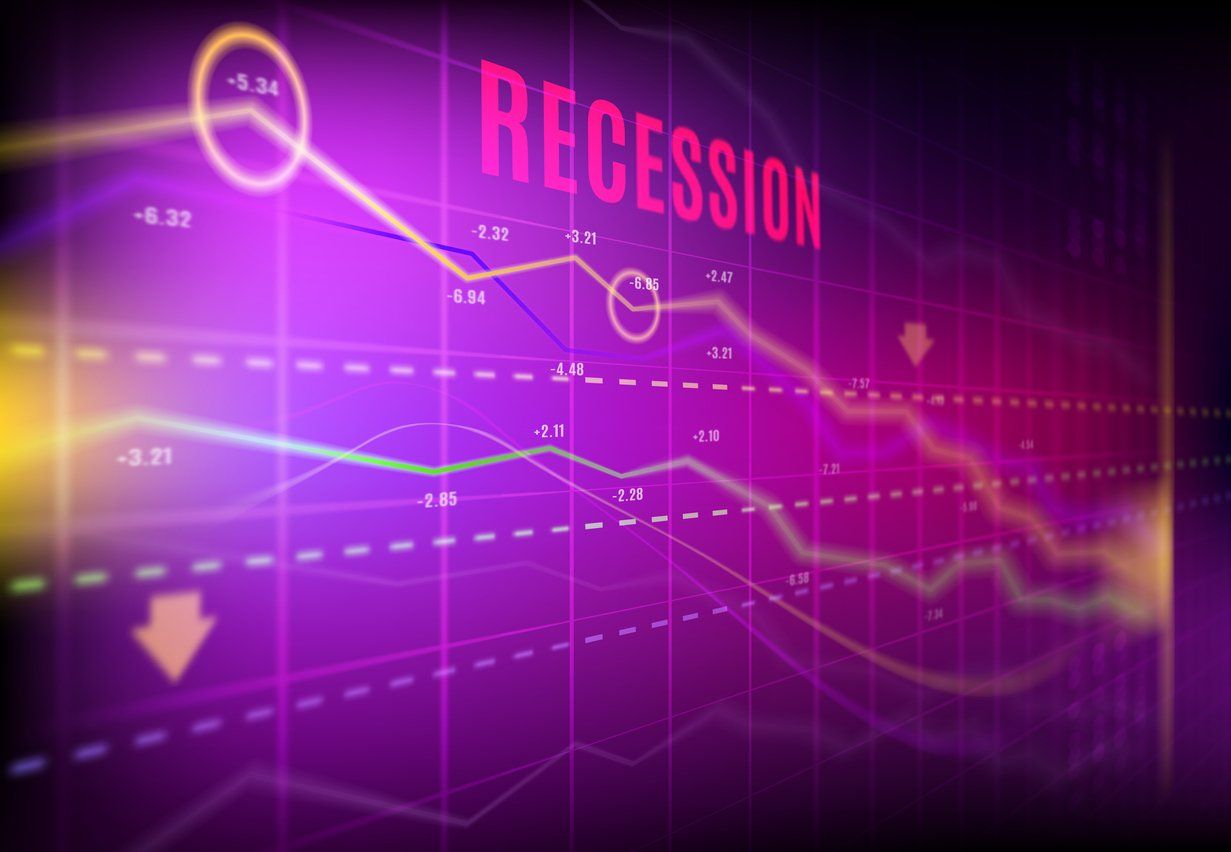How a Recession, the Stock Market, and the Economy Relate

Ever wondered why the economy shifts periodically from periods of rapid growth, stagnation, and decline? It all revolves around the stock market, the economy, and financial trends within the markets.
The stock market reflects the economic conditions of a nation's economy. Understanding how the economy and the stock market work can help consumers develop habits that safeguard them during a recession or economic downturn.
What is the Correlation Between the Stock Market and the Economy (Recession)?
A recession is a macroeconomic concept that refers to a significant plunge in the economic activity of a specified region. Government officials, investors, and businesses track several economic indicators which can help affirm or predict the onset of a recession: the National Bureau of Economic Research (NBER) declares these officially. If projections indicate a looming recession, the stock market falls. On the other hand, consumers will shift their mindset regarding their money and spending habits.
A recession affects the economy in the following ways:
- Stock prices plummet. Markets become volatile when share prices are constantly shifting. Investors, in turn, react abruptly regardless of the news and are more likely to withdraw their money from the stock markets.
- The housing market takes a plunge. A combination of factors such as the rise in subprime mortgages, loose lending practices, and increasing home prices jeopardize the stability of real estate prices. Defaults and foreclosures crash the housing market, obliterating financial securities and reinforcing subprime mortgages.
- Recessions increase the rate through which the workforce loses opportunities. It also results in lower incomes and wages and high unemployment rates. Other sectors that suffer in an economic downturn include economic opportunities, private capital investments, and education.
How Can You Earn Returns During a Recession?
An educated investor will assume a sound investment strategy at the onset of a recession by looking for corporations with steady business models and strong balance sheets despite severe economic downturns. Such companies may include defense stocks, good conglomerates offering essential consumer products, and utilities.
At the onset of a recession, consumers will spend less and shift their money to other investments. For example, a Netflix subscriber will stop spending money by going to the movies and instead stay at home while streaming their preferred films.
Price to Earnings (P/E ratio), Revenue Growth, and Debt
Fundamental analysis depends on information from corporate financial statements to formulate various ratios, such as price-earnings (P/E), debt-to-equity ratio, and revenue growth.
Investors use P/E to establish the potential for growth for stocks. You can calculate the ratio by dividing the market value price per share by the organization's earnings per share (EPS). The latter is the number of a firm's profits allocated to individual stocks, indicating a corporation's financial health.
The times-revenue method also helps you evaluate a range of values for a business because it draws from actual earnings from a given period. A multiplier provides a range serving as a sound starting point for deliberation.
Another figure that investors use to determine a business's financial soundness is the debt-to-capital ratio. It compares a firm's total long-term and short-term debt obligations with the cumulative capital provided by debt financing and shareholders' equity.
How to Survive a Recession
You can develop habits that will safeguard you from the effects of an economic downturn.
Even during a recession, consumers will continue to spend at retailers. For example, some people will go to dollar tree instead of luxury department stores in the US. Dollar tree increased its price point to $1.25 in August 2021: the costs have been rising because the company was trading at a lower P/E.
Other strategies that will help you become recession-proof include:
● Create an emergency fund
● Maintain a high credit score
● Diversify your investments
● Remain realistic about risk tolerance
● Make long-term investments
● Have multiple sources of income
● Live within your means
Benefits of a Recession
Investing during a recession could be a brilliant idea. Patient investors understand that stock markets such as healthcare outperformed other markets during previous recessions. As an investor, you should invest in consumer staples such as medical supplies, hygiene products, drugs, and food.
As an educated investor, you could also buy into dividends. Large-cap corporations with strong cash flows and balance sheets will likely hold stocks during economic downturns. These firms are better cushioned for economic slumps than smaller businesses with poor cash flows but are highly likely to issue dividends.
Let's Connect
Need help managing your 6-figure+ portfolio? Schedule a consultation with Brown Investors Wealth Management here.
More of a DIY investor? Become a patient and informed investor by starting one of our intro courses: Investing 101 - Brown Investors University or Crypto 101 here.










